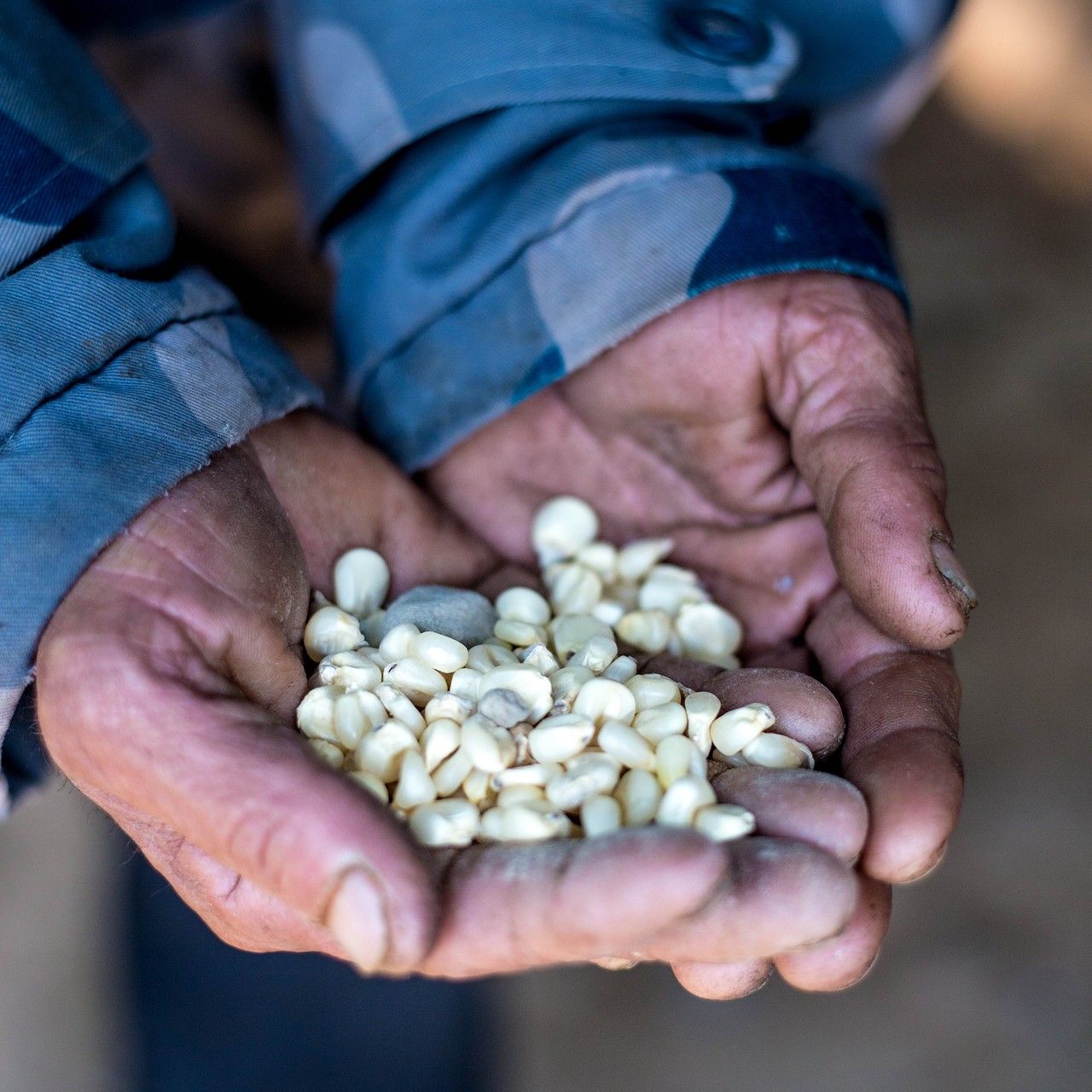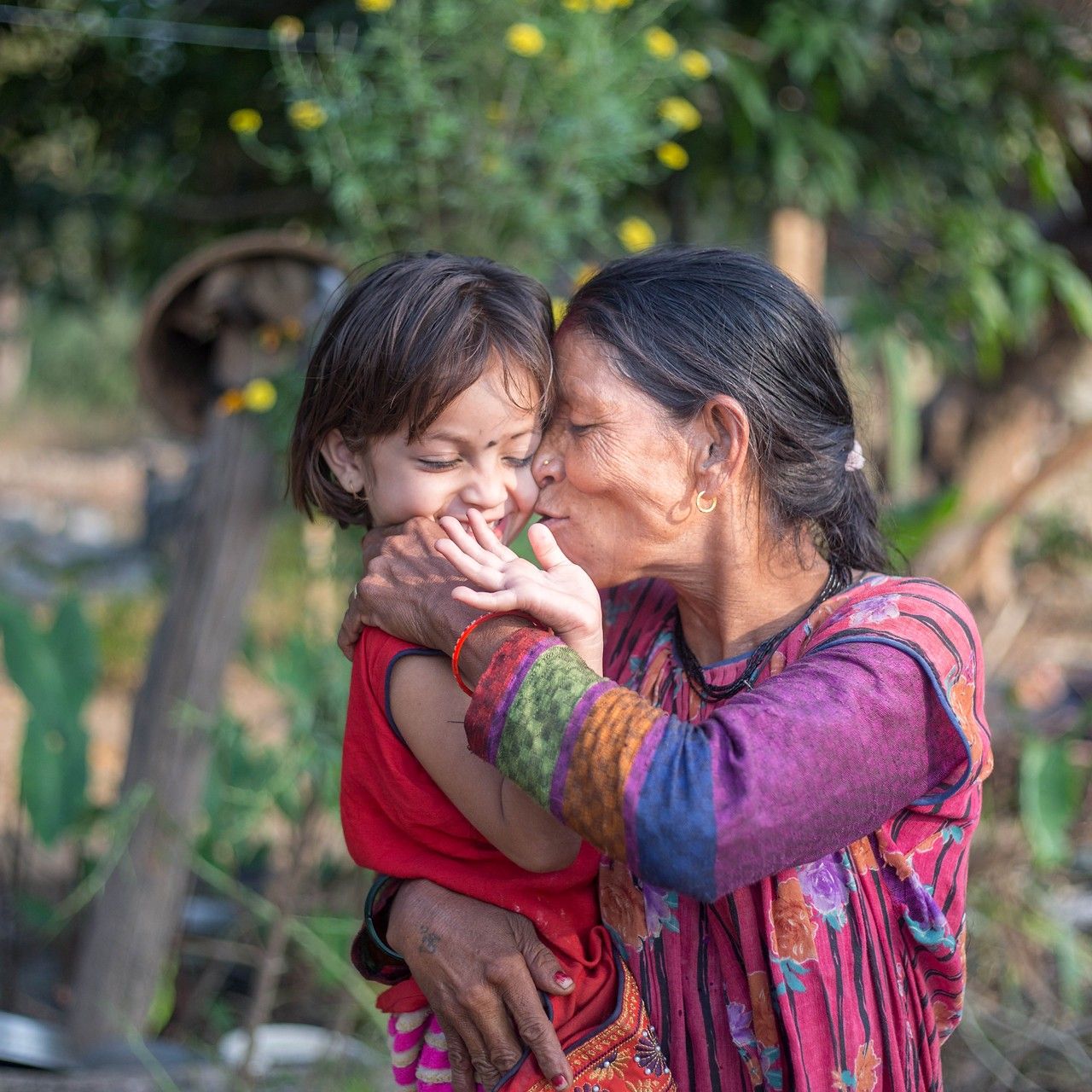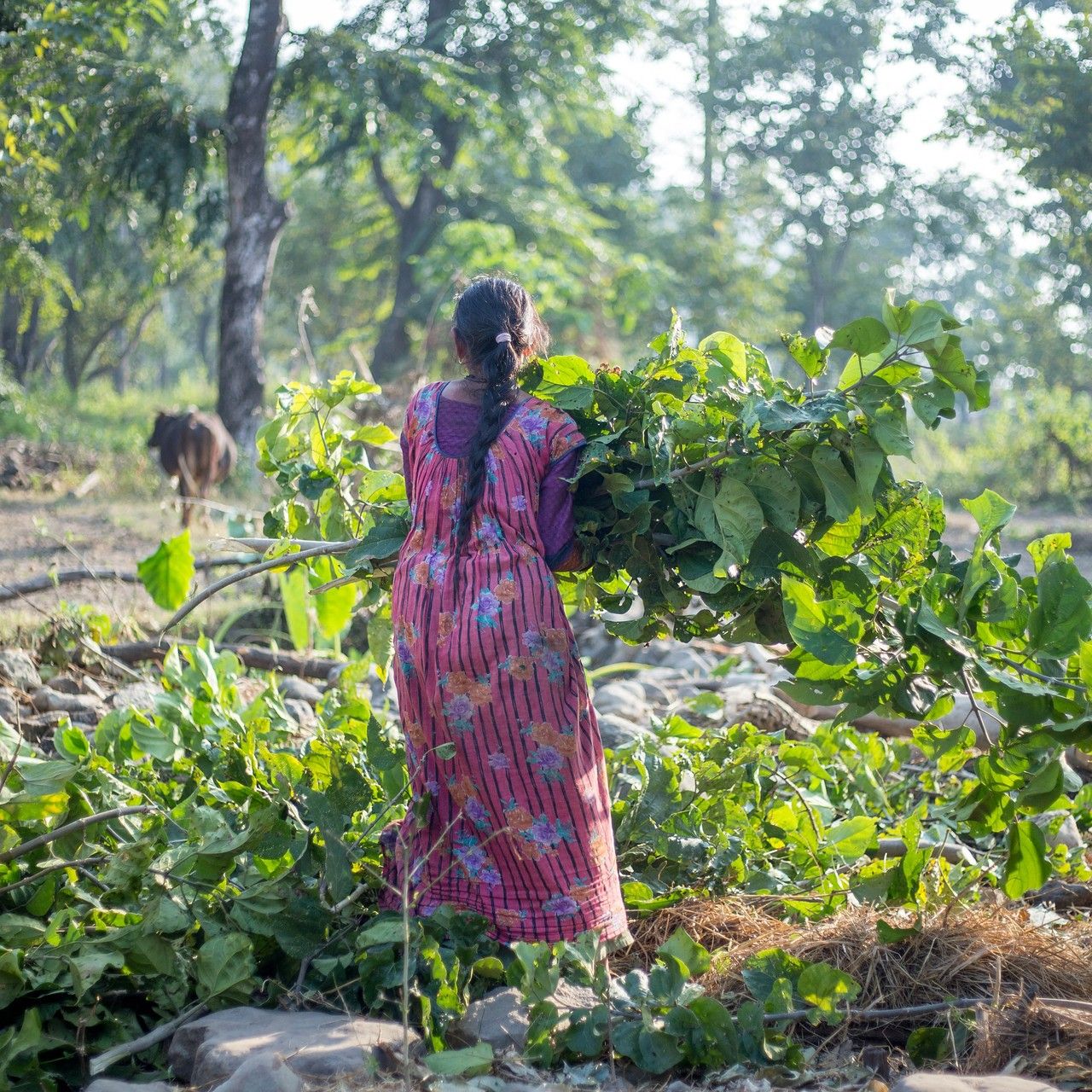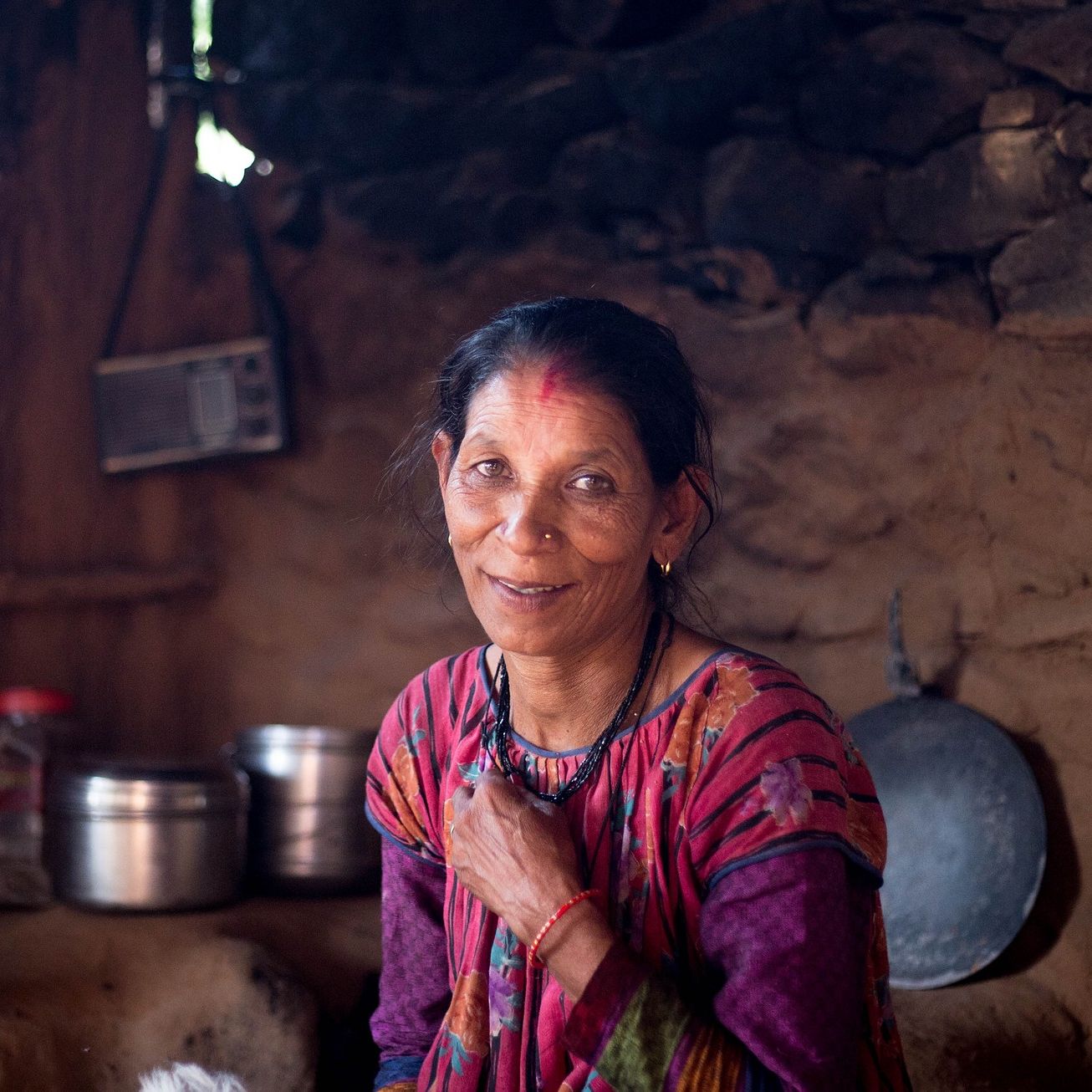
Her advanced knowledge and skills around feeding, medicating, breeding, and eventually selling her goats ensure a bigger profit with fewer losses.
The rancher
Padma Devi Sarki
“Today, whatever I have, I have earned it on my own. I fought with my Karma to build myself.”
Padma has never been to school. Her mother passed away when she was young, and her father was never keen on sending her and her siblings to school. Many elderly Nepali people are uneducated and don’t see the point of school if there’s no clear path forward afterward. In addition, schools are often far away or too expensive.
Instead, she worked as a daily wage labourer in the same village that she lives in today. She remembers long hours of intense work: carrying heavy loads of salt, honey, and stones. She remembers cutting grass, feeding cattle, and generally suffering under unpleasant conditions such as dealing with the natural elements outdoors and undertaking hazardous work for long periods of time without proper compensation. And she regrets she did not have the opportunity to attend school.
Today, she has income from her goat farming and beekeeping business. She and her husband support one another, taking turns going to the construction sites and tending to the goats and bees. It isn’t easy. They wake up at 4 a.m. Work, for Padma, has always been manual, long, and difficult.
There are days that she wakes up and has nothing to eat for breakfast. “The lives of poor people can be harsh,” she says. “The daily wage is not enough.”
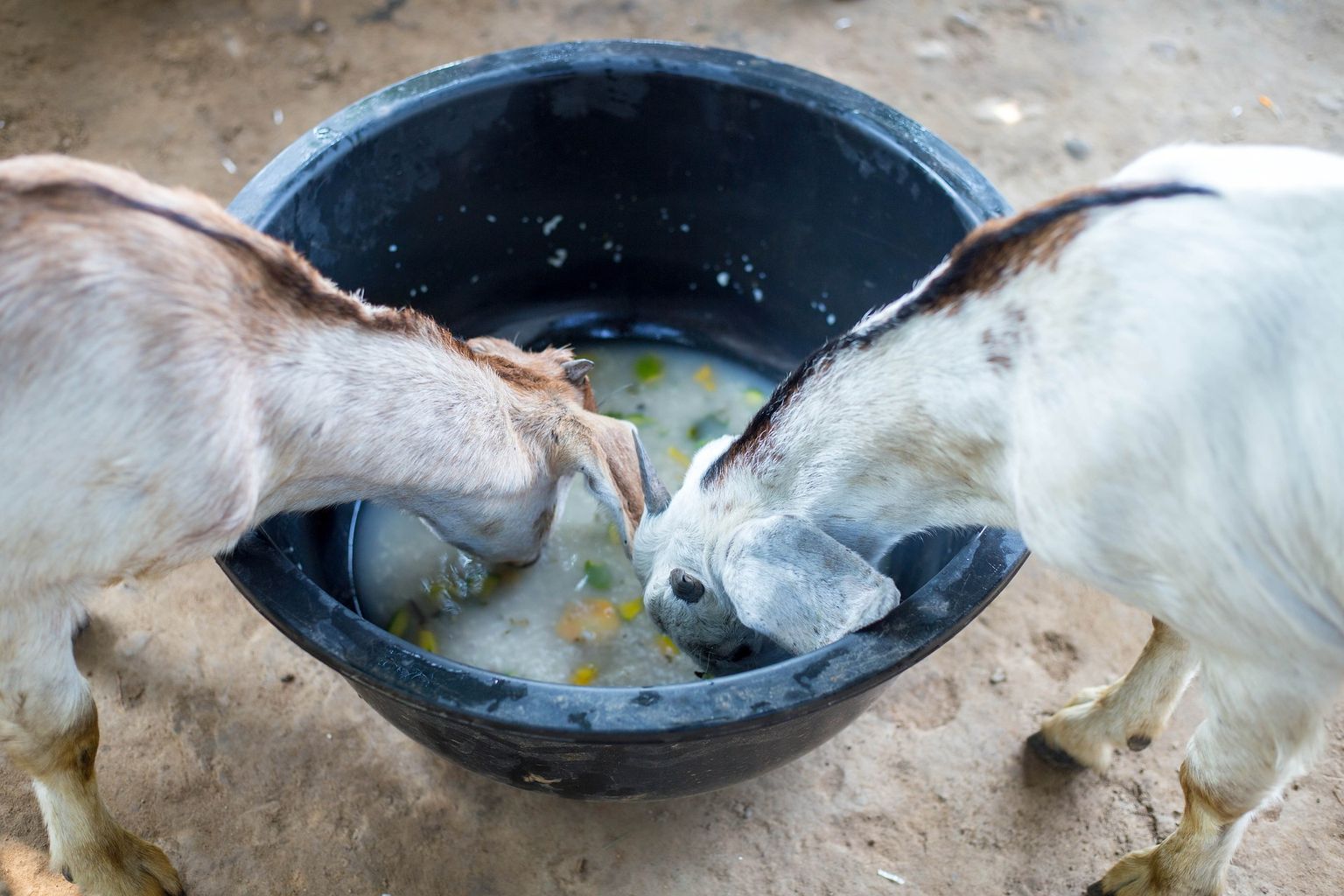
However, thanks to the the Bridge project project, Padma Devi Sarki has learned new techniques that have improved her goat farming and business experience. Now, she knows more efficient ways to sell goats, thus making a bigger profit and avoiding losses. In addition, the training programme enhanced her knowledge around feeding, medicating, and breeding goats. Today, for example, she houses her goats separately, based on age.
She has used her increased income to buy school uniforms, notebooks, and stationery for her children. Two of her children, aged 17 and 18, work at a stone quarry, breaking and loading materials. Her younger children are temporarily out of school due to the COVID-19 pandemic, but they will continue their studies once classes resume.
“Now, I know efficient ways of selling goats to make a profit and avoid loss.”
After her children were forced to quit school to help support the family’s income, they did not want to return. They told their mother that it would have been too embarrassing to repeat a year of school. Padma Devi Sarki feels helpless; she cannot force them to go back to school, even though she knows it is likely the only way to break the cycle of poverty and vulnerability.
Of course, giving up is not an option. It never was. Her 32 goats, her main source of living, give her hope for the future. She looks to her past and appreciates the hard work that she has done to earn the life she has today. She looks forward to building better barns with lights and sheds for her animals. And she continues to support her children in their endeavors, wishing them independence and happiness, despite the odds.
“I am still determined to work and I am doing it. I dare to earn my living.”
